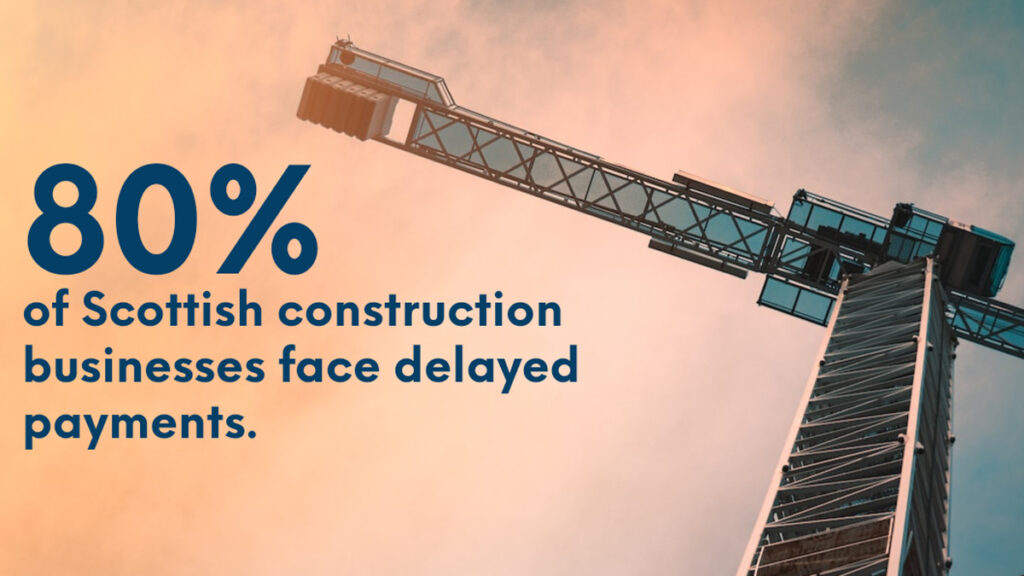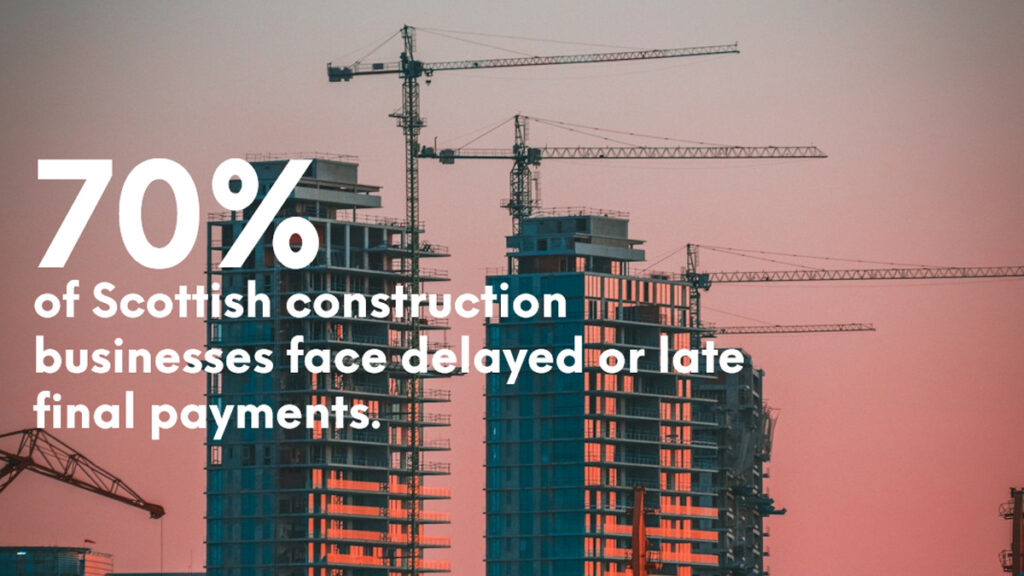
A new survey conducted by the CICV has found that Scottish construction businesses continue to struggle with late payments, payment reductions and unresolved disputes.
Despite government and industry efforts to address financial challenges in the sector, the poll highlights that there is still a significant gap between purported initiatives and actual improvements in payment practices.
Key findings from the research, conducted through the CICV’s 28 member organisations in November, revealed:
- Delayed payments: 80% reported experiencing delays or adjustments in receiving final payments’ occasionally’ to’ very often’.
- Late final payments: 70% encountered delayed final payments ‘occasionally’ to ‘very often’, with 24% stating outstanding values over £100,000, creating cash flow issues.
- Payment reductions: 63% faced unexplained payment reductions, intensifying their financial challenges.
- Write-offs: 43% had to write off disputed sums, with 47% reporting amounts between £10,000 and £100,000+.
Ian Honeyman, Co-Chair of the CICV’s Procurement, Quality and Pipeline sub-group, insisted the survey reinforced the gravity of the current situation across Scotland.
He said: “These findings underscore the severe impact that delayed payments, or even worse, non-payments, have on the viability of businesses, compounded by the strain from reduced credit facilities and retained funds.
“Despite well-publicised commitments from government and industry to address unfair and damaging payment practices in the UK and Scottish construction sectors, aimed at improving cashflow along the supply chain, we continue to observe poor behaviour in this area.
“Without substantial changes in these practices, attaining a financially stable and sustainable construction sector remains challenging.”

Len Bunton, Co-Chair of the CICV’s Procurement, Quality and Pipeline Group, also called for a radical overhaul of payment practices in the Scottish construction industry.
He said: “Given that existing legislation or initiatives such as the Prompt Payment Codes have not resolved these persistent issues, it is clear that we require more robust practical measures.
“The current state of affairs is unsustainable and demands immediate action.”
Looking ahead, both Ian and Len stressed CICV’s determination to address these challenges.
Len said: “We are committed to directing CICV’s efforts on providing targeted, practical guidance and advice to tackle the pressing payment issues, aiming to improve cash flow and foster sustainable practices in the construction sector.
“This approach will demonstrate CICV’s determination to transform sector issues into opportunities for positive change, underscoring its commitment to enhancing the overall health of Scotland’s construction sector.”
- A copy of the survey can be downloaded here.

